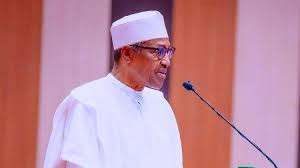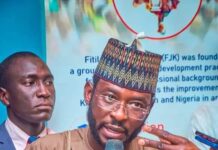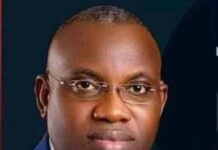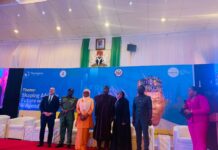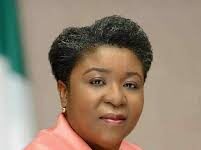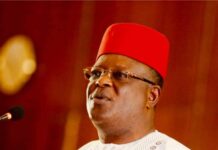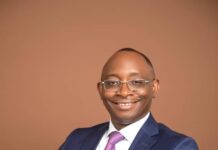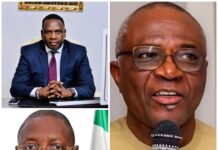He came, he saw, he slept By Achilleus-Chud Uchegbu
In classic literature, we read of Julius Caesar declaring “He came, he saw, he conquered” (Veni, vidi, vici) in a letter to the Senate of Rome after he had achieved a quick victory in his short war against Pharnaces II of Pontus at the Battle of Zela. Many have also applied the phrase in declaring victory over tough situations. Several years later, the US Secretary of State, Hillary Clinton, corrupted the Caesarian phrase while eulogising US-NATO forces for the criminal murder of President Muammar Gaddafi and the mindless destruction of Tripoli, the Libyan capital, wherein she declared hilariously to the applause of the combined forces: “We came, we saw, he died” (venimus, vidimus, mortuus est). This famous victory song will now have to be further corrupted in reference to Muhammadu Buhari’s eight-year reign over Nigeria as “venit, vidit, dormivit,” which translates to mean: He came, he saw, he slept.
POLITICS DIGEST – For many Nigerians, those nine words summarise Buhari’s reign over Nigeria from May 2015 to May 2023. Prior to 2015, a lot of Nigerians had argued and believed that with his alleged stoic disposition, assumed Spartan lifestyle, supposed integrity and professed commitment to goodness, a Buhari would be the answer to the “16 years of the PDP”, which many associated with everything that was wrong with the leadership of the country, including stealing of public wealth. The general disposition was that someone with a strong understanding of the military ethos of discipline and nationalism would better integrate the country through transformational civil leadership that would have strong military support to overcome the threat of insecurity in the country. Buhari became the rallying point as an option. However, in his first post-election interview in 2015 with the BBC conducted by Peter Okwoche as President-elect, Buhari said no one should expect miracles from him.
“I wouldn’t have made the promises if I don’t know how to go about them. We have identified different fundamental problems, that is, the insecurity in the country, which everybody knows and the lack of employment, and the destruction of the economy by corruption and then corruption itself. These are three fundamental problems and all Nigerians know it. We are asking Nigerians for their cooperation. They shouldn’t expect miracles to happen a couple of months after we have taken over because the destruction took so many years, the 16 years of the ruling party. So, I believe the country will give us the opportunity to do our best, to pick our priorities and work as hard as we can”, he said.
Indeed, Nigerians gave him all the support he asked for and even more. But he went to bed.
Many Nigerians who watched the interview, which was conducted in the garden of his Abuja residence, literally ended their expectation of positive change in the country with him in charge. That evening, he effectively killed hope. And he demonstrated that when he foot-dragged in constituting his first cabinet. His assumption, perhaps, was that he did not need ministers because, as he said, they were “noisemakers”. Perhaps, that was why he failed in his duty to supervise and direct their actions. Perhaps, too, that was why his ministers ran riot on public resources and dipped their hands too deep in the oil pot. Recall his Power Minister, Saleh Mamman, who is now a regular visitor to EFCC, is alleged to have padded himself with N22 billion only from funds made available for the building of Mambilla Hydropower Plant, in his home state of Taraba.
Read Also:
Buhari’s eight-year reign is signposted by a lack of control of his government. It is publicly acknowledged that a kitchen cabinet of family members and close associates managed his government. This may the reason he shows a lack of capacity to rein in his team in their last-minute rush to deal off whatever is possible before the handover date. Sen. Shehu Sani had, on his Twitter handle, raised the alarm about the clandestine sale of public assets in these last days of the administration. Sen. Sani had alleged that “Buhari’s government in collaboration with the state governors quietly sold the five power generating plants without telling the country what the money was used for”. He also said, “The outgoing FG is hurriedly concessioning public assets. The nation is kept in the dark on the terms of these deals. The National Assembly is nowhere to be found on this issue. Years after, the so-called investors will sue Nigeria in London courts and we will be threatened with judgment in billions of dollars. Buhari’s people are not making things easier for his successor and Nigerians.”
Sani also raised so many other alarms, including the concession of Aminu Kano International Airport, Kano.
Interestingly, there have been no official responses to these allegations. The only thing that came close to it was a veiled admission by Garba Shehu, who, speaking in a television chat, admitted massive stealing of public resources by officials in the Buhari government. However, Shehu’s admission came with a caveat, which absolved the President of any wrongdoing and of any beneficial interests in the
ongoing looting. In doing that, Shehu admits that the President is actually aware of the massive corruption in his government but is helpless. By implication and without saying it, Shehu admits that the President could not adequately supervise or rein in his aides.
The Saturday Vanguard of May 20, 2023, hit public consciousness with a bold caption that read: “Insecurity: 63,111 killed in Buhari’s 8 years”. The report came with riders that “27,311 killed in President’s first term”, and “35,800 killed between 2019 and 2023”. While this may not be comprehensive, it, however, offers a glimpse into the outcome of the investment Nigerians made in Buhari for their safety. In the 2015 BBC interview referenced above, Buhari said, in response to his promise to tackle insecurity, “I made that promise and I hope you (BBC) and Nigerians will give me the opportunity to see if my effort will be good enough or not”. Eight years down the line, everyone, including the blind, knows better.
Perhaps, one thing that worked very well for Buhari was the excuse machine around him. He was very lucky to have such a near-perfect excuse machine. And, it worked well for him. Even ordinary Nigerians would manufacture excuses to absolve him from his failures. They would blame a certain Mamman Daura who they did not know and did not vote for. They would blame Abubakar Malami, SAN, Attorney-General of the Federation. They blamed Godwin Emefiele of the Central Bank of Nigeria. They blamed other unknown elements in the Villa, especially those that Buhari’s wife, Aisha, referred to as “jackals and hyenas” and absolved Buhari even when they knew that the buck stopped at the President’s table. And Buhari enjoyed the cover. He lived and ruled by it. He pretended not to be aware of anything around him. But he was.
Isn’t that why he has said, if Nigerians disturb him too much in Daura, he would take an eight-hour ride into the sweet embrace of Niger Republic? Isn’t that why he has also said that if Nigerians blame him too much, Niger Republic will rise in his defence? In other words, as President, he did more to make Niger Republic a comfortable retirement home, not Daura, and not Abuja. The last time I checked, Olusegun Obasanjo and Goodluck Jonathan were peacefully and comfortably resident in Nigeria. They also mingle freely with those they once led.

